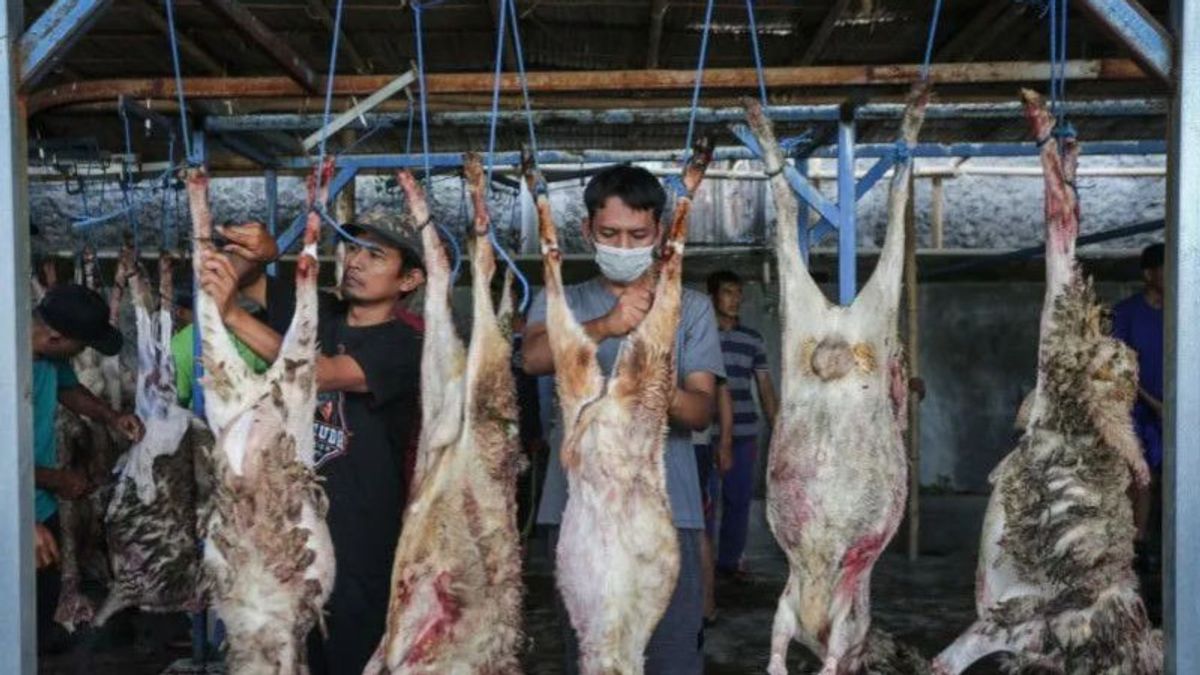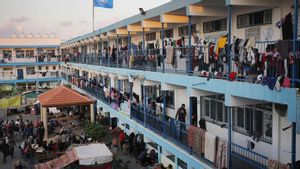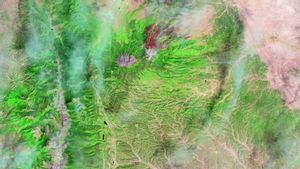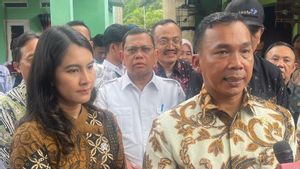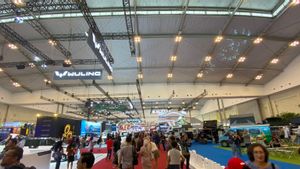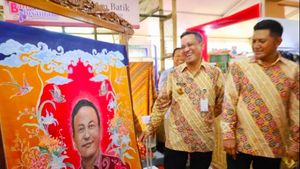YOGYAKARTA - The Agriculture and Food Security Service (DPKP) of the Special Region of Yogyakarta reminded the public not to wash "jeroans" or the hull organs of sacrificial animals in the river. Head of the Livestock Division of the DPKP DIY Erna Rusmiyati in Yogyakarta, Wednesday, June 28, said that the appeal had been conveyed to the public through communication, information, and education (KIE) teams. "For the meat or Jeroan itself, it clearly becomes unhealthy because the river water is dirty and polluted," he said. Apart from being unhealthy and hygienic, according to Erna, washing the corals or organs in the sacrificial animals in the river can cause an unpleasant odor and contaminate the river water flow. If the jeroan comes from sick livestock, he said, then the flow of river water used to wash can be a medium of transmission to other livestock. "The impact of contaminating the river water and if someone is sick can transmit to the livestock along the river drinking from the water flow," said Erna. He said, DIY DIY DPKP has held technical guidance on the cutting of sacrificial animals to mosque takmirs throughout DIY related to the process of cutting sacrificial animals according to sanitary hygiene standards. Through this guidance, he hopes that the produced meat meets safe, healthy, complete and halal standards (ASUH). As many as 200 students of the Faculty of Veterinary Medicine, Gadjah Mada University (UGM), he said, will be deployed to check the sacrificial animal meat after slaughter.
A number of students, he said, would be supported by a team from the district/city livestock service that would conduct antemortem examinations including checking the behavior and physical behavior of sacrificial animals at selling and slaughter locations in DIY. Lecturer of the Faculty of Livestock UGM Nanung Danar Dono said washing the netting of sacrificial animals in the river was risky because in general the river in the city area had been polluted with chemicals, hospital waste, medicine germs such as escherichia coli and disentri. "If not, it would also be better to use a clear plastic bag," said Nanung.
The English, Chinese, Japanese, Arabic, and French versions are automatically generated by the AI. So there may still be inaccuracies in translating, please always see Indonesian as our main language. (system supported by DigitalSiber.id)
